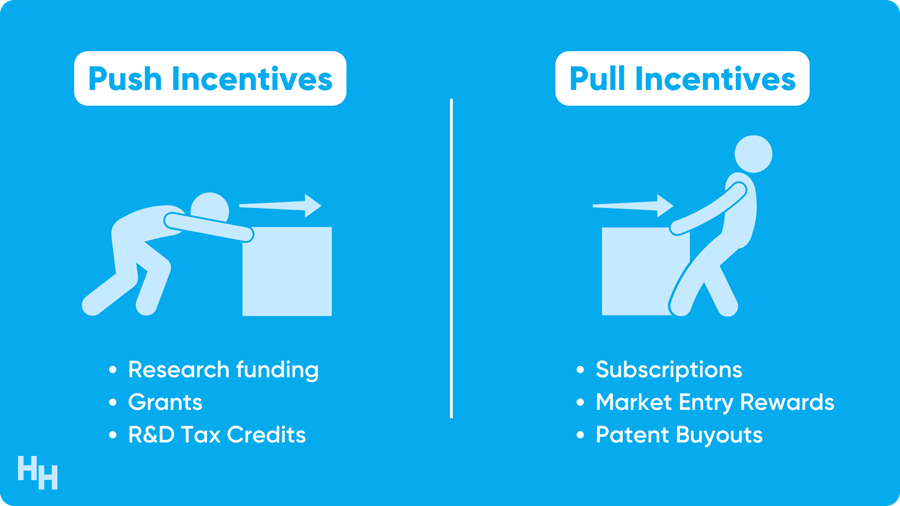17 April 2022 | Healthcare
The Netflix of Antibiotics
By workweek
The UK plans to use a subscription-based model for Pfizer and Shionogi to increase the supply of their powerful antibiotics. The government will pay the two companies $13M/year over the decade for a guaranteed supply of two drugs, cefiderocol and ceftazidime-avibactam.
These drugs are known to treat drug-resistant bacteria infections, and we (the world) need more drugs like these. While Covid is at the top of our minds, brewing in the background is an inevitable, multi-drug resistant bacteria that can wreak havoc on society.
The Problem
Widespread, often inappropriate, use of antibiotics along with bacteria evolution has led to antibiotic-resistant bacteria. The medical community’s response to antibiotic-resistant bacteria? Cut back on unnecessary antibiotic use.
However, pharma companies’ antibiotic revenues are linked to sales volume.
As you’d expect, slow antibiotic sales caused by providers cutting back on antibiotic prescriptions have led to little revenue, which is a disincentive for biotech and pharma companies to invest in making new antibiotics. Do you see the problem, now?
The Solution

Push and pull incentives seem to be the best solution to incentivize the creation of new antibiotics.
- Push incentives include grants and funding, which push companies to start their work.
- Pull incentives include subscriptions (like what the UK is doing) and market entry rewards (like winning a gold medal for coming in first place), which pull companies to follow through with their work.
Pull incentives are attractive since they de-link revenue from sales volume, meaning companies don’t need to sell-sell-sell to make a lot of revenue. Data suggest that both push and pull incentives are necessary to sufficiently incentivize investment into creating new antibiotics.
My Thoughts
I’m curious to see how UK’s “Netflix”-esque model plays out. The U.S. has legislation in the works that would similarly pump $11B of pull incentives into the antibiotic pipeline for companies that create chemically distinct or an entirely new class of antibiotics. Other countries are also on board with this type of subscription model.
At the end of the day, though, it will take a global effort to create new antibiotics—it won’t just be a “UK is doing it, so we don’t have to”-type gig. Here’s how I think about it:
- All of your friends (assuming you have more than 1) can’t rely on your single $120/yr Netflix subscription to watch Love is Blind. They’ll get kicked off the account if more than a few are logged on simultaneously. So, a couple of them will also need a subscription, and only then can the rest of your friends watch Love is Blind without getting kicked off.